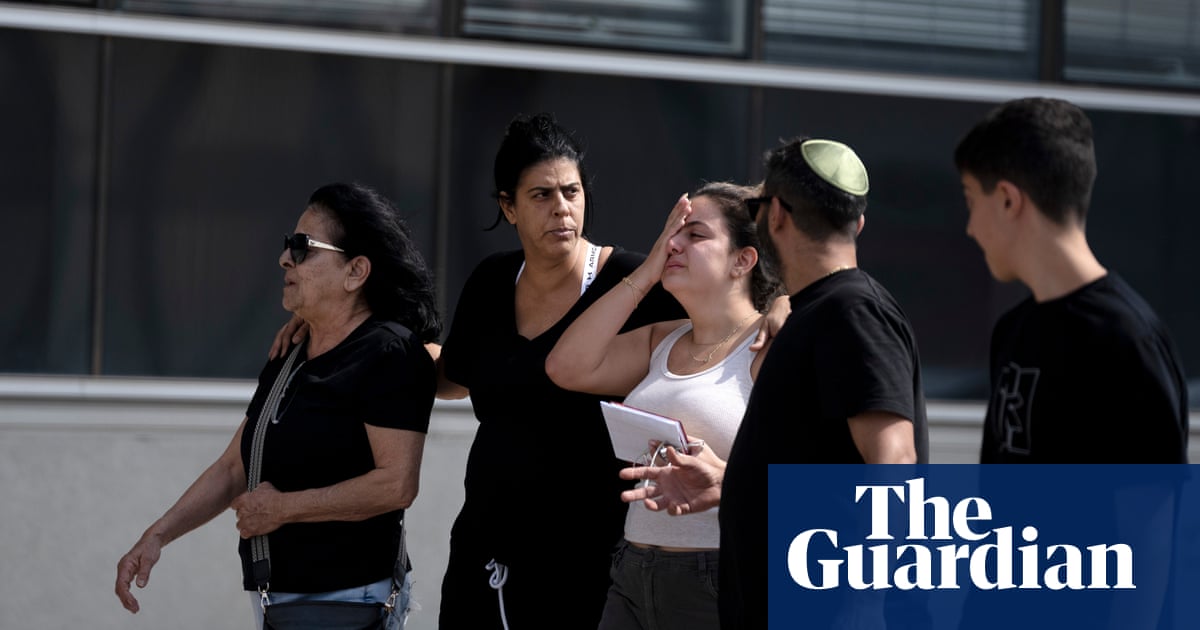At least 600 Israelis have been killed and around 100 taken hostage in the deadliest attack in the country’s history
Steve Markachenko, a 25-year-old from Carmel, in northern Israel, had been looking forward to attending the Nova music festival on a desert kibbutz this weekend. He and his girlfriend, Elisa Levin, 34, drove four hours south on Friday night for the event celebrating the Jewish harvest festival of Sukkot.
But at 6.30am on Saturday, they were among thousands of young partygoers enjoying the sunrise but unaware that their lives were about to change for ever. At first, the air raid sirens seemed as if they were part of the trance music, survivors said. Then rocket vapour trails began appearing in the sky above: people began panicking about being caught in the open and rushed to their cars. And then the gunfire began.
About 200 people are believed to have been killed at the all-night festival, and dozens more are still missing, believed to have been taken to the Gaza Strip as hostages. The attack was one of the worst single incidents during the Palestinian militant group Hamas’ surprise offensive Operation al-Aqsa Flood – a day that will go down in history as Israel’s 9/11.
Some attenders watched their friends die in front of them; others played dead for hours until they heard voices speaking in Hebrew and knew help had arrived. Videos from the scene showed lifeless bodies on the ground, a shot-up van, and men and women being dragged away by armed militants. Screams fill the air.



This is the best summary I could come up with:
The attack was one of the worst single incidents during the Palestinian militant group Hamas’ surprise offensive Operation al-Aqsa Flood – a day that will go down in history as Israel’s 9/11.
In what is usually a deeply divided society, Israelis of all backgrounds – secular, ultra-Orthodox, nationalist-religious types, Ashkenazi, Mizrahi, and Palestinian citizens of Israel – milled around the building, united in worry and grief.
The Israel Defence Forces (IDF) were slow to respond; fighting continued overnight and into Saturday evening as the army still struggled to neutralise gunmen in different locations; by sundown, at least three villages and kibbutzim appeared to be going back and forth between Israeli and Hamas control.
As the war lurched into a second day on Sunday, sirens continued to blare across southern and central Israel as volleys of rockets launched from Gaza hit the same areas that suffered Saturday’s violence; the IDF is evacuating Israelis from a buffer zone around the strip, making a ground offensive more likely.
Near the city of Ashkelon, highways heading north were packed, but empty in the other direction, other than army vehicles and a handful of civilian cars blasting music to raise troops’ morale.
On Ha-Tamar Street, in the small town of Ofakim, nearly every house was covered in bullet holes, every car shot up, and traditional Sukkot tents for eating outside during the holiday ripped and torn.
The original article contains 1,394 words, the summary contains 231 words. Saved 83%. I’m a bot and I’m open source!